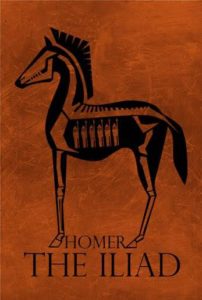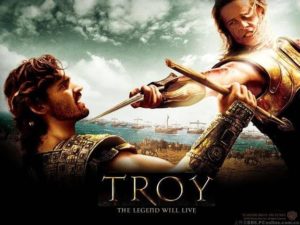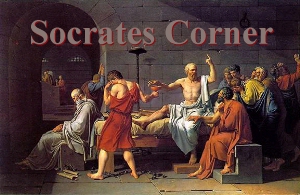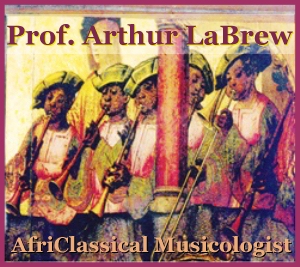Trump’s Iliad
Stone Washington 6/29/16
“Let me not then die ingloriously and without a struggle, but let me first do some great thing that shall be told among men hereafter”
~ Hector, Iliad
“What separates the winners from the losers is how a person reacts to each new twist of fate”
“Sometimes by losing a battle you find a new way to win the war.”
~ Donald Trump
Background
The Trojan War (1260–1180 BC) began when the Olympian gods asked Prince Paris, son of King Priam (also known as the Ilium, as reflected in the story’s title) to judge in a beauty contest, in which he chose Aphrodite, the goddess of love and beauty, after she bribed him with a promise to give him as wife the most beautiful woman the world – Helen Queen of Troy.
Aphrodite helped smuggle Paris into Sparta and persuaded Helen, to escape with her to Troy. Enraged, Helen’s husband King Menelaus assembles an army of Greek warriors (also known as the Achaeans, Argives, and Danaans) including his brother Agamemnon King of Mycenae and commander-in-chief of the Greek army and ventures to Troy. Also among the army is the legendary warrior Achilles, who would be essential to the Greeks’ chance of victory and the central character in the Iliad. They made their way to the nation of Troy, and thus began the Trojan War. During a raid on a Trojan town, the Greeks seized two beautiful maidens, Briseis and Chryseis, who were awarded respectively to Achilles and Agamemnon out of gratitude for their prowess in battle. Chryseis was the daughter of Chryses, a priest who served Apollo, the god of the sun, poetry, music prophecies. Chryseis pleaded with Agamemnon to be released but he refuses. So her father Chryses prayed to Apollo for help, sparking the beginning of the Iliad.
Books 1-4
In the Greek camp on the plains of Troy, Apollo unleashes a plague that decimates Greek’s morale. The prophet Calchus explains that the plague will cease when Agamemnon returns Chryseis to her father. Agamemnon reluctantly agrees but takes Achilles’ woman, Briseis as compensation. Incensed by this dishonorable affront, Achilles withdraws his troops from battle. That night Achilles prays to his mother, the sea goddess Thetis, to request that Zeus, King of the gods, makes the Greeks lose battles so that they will be forced to ask Achilles for help, thereby restoring his honor. Zeus agrees, despite the disapproval of his wife Hera, who hates the Trojans. Zeus sends Agamemnon a falsely encouraging dream which allows him to perceive that victory is certain. Exuberant, Agamemnon tests his men’s spirits for battle the next day by announcing their return to Greece. Instead of showing their enthusiasm to fight for Greece (as Agamemnon had hoped), the army runs in a frenzy to the ships. Odysseus, a brave warrior, stops the riot and successfully shapes the soldiers hearts for battle. The battle begins with Paris, often criticized for cowardice by his brother Prince Hector (the greatest warrior in Troy), agreeing to a one-on-one fight with Menelaus. But Paris is nearly killed by the Spartan King, prompting Aphrodite to save him. Agamemnon boasts victory, but Athena, goddess of wisdom and defensive warfare, causes a Trojan archer to wound Menelaus, inciting war to break out again.
Books 5-8
Even the gods participate in the fierce battle that ensues. The brave Greek chief, Diomedes with help from Athena, leads the Greeks to multiple victories nearly killing the Trojan hero Aeneas and wounding Aphrodite. When Diomedes’ war path allows him to attack Apollo and wound Ares, the god of war, the gods withdraw from battle. Hector briefly visits his wife Andromache and his new born son Astynax watching the war behind the wall. He exchanges loving but disheartening words for Andromache then returns to battle, where he volunteers to fight any Greek warrior in one-on-one combat. Ajax, a brave and mighty Greek warrior, steps up to fight Hector. In the fierce battle, Hector is almost killed but is saved when an early nightfall sent by the gods descends upon the land. Both the Greeks and the Trojans accept this sign from the gods and announce a truce to bury their dead. The Greeks build a defensive wall around their camp and when the truce ends Zeus and Fate (a “mysterious force”) bring defeat to the Greeks, despite objections from Hera and Athena. Lead by Hector, the Trojans drive away the Greeks into a panicky retreat, then camp on the plains near the Greek fortification.
Books 9-10
Worried about the Trojan’s success, Agamemnon sends Odysseus, Ajax, and Achilles’ old mentor Phoenix, to offer great gifts to Achilles to participate in the war. Achilles agrees to fight only if his own tents or ships are in danger. Agamemnon growing more worried sends Odysseus and Diomedes on a spying mission; they return after killing a Trojan spy and many sleeping Trojan allies.
Book 11-15
The next day Agamemnon leads the Greeks to battle; at first they seem successful, but Fate determines that the Trojans are the victors. Back at the Greek camp, Patrocles, Achilles’ best friend, treats the wounded, having compassion for his fellow countrymen. The Greeks aided by Poseidon, god of the seas, manage to rally against the Trojans. Hera is happy that Poseidon is helping the Greeks and aids him by casting a sleep spell on Zeus, who supports the Trojans. The Greeks momentarily win until Zeus awakens and orders Poseidon home. After a frenzied argument, the gods agree with Zeus’ decision that Apollo may join the battle by urging Hector on.
Books 16-17
Patrocles moved by the suffering of his army requests that Achilles lend him his armor so that the Trojans will mistake him for Achilles and retreat. Achilles reluctantly agrees, but warns him only to rescue ships and not attack Troy directly. Patrocles and the Myrmidons turn the tide of battle and sweep the Trojans across the plains of Troy. Patrocles kills many, including Zeus’s son Sarpedon, but ignores Achilles’ warning and attacks the Trojan wall. Hector, aided by Apollo, kills Patrocles in battle. As he dies, Patrocles predicts that Hector will die. Menelaus, Ajax, and many other Greeks battle to rescue Patrocles’ body, but are unable to seize it or Achilles’ armor.
Books 18-19
When word of Patrocles’ death reaches Achilles, he feels deep sorrow and swears to kill Hector, knowing that he too, according to prophecy, will die soon. When Achilles appears at nightfall, he strikes fear into the hearts of the Trojans and they flee, allowing the Greeks to rescue Patrocles’ body. Hector refuses to retreat to behind the walls of Troy. Hephaestus, the metal smith god, crafts Achilles a specially forged armor and shield to replace his loss. Achilles’ new shield is beautifully carved with scenes of nature and human life. The next morning Thetis delivers the armor to Achilles, while Agamemnon apologizes to Achilles for their quarrel, but Achilles dismisses its importance. Focused on revenge, he arms himself for battle. When his chariot horse miraculously speaks and prophesies his death, Achilles remains unmoved.
Books 20-22
As the battle ignites in the first rush, Achilles nearly kills Hector and Aeneas, but Apollo saves them. Achilles then drives the Trojan forces across the banks of the river Xanthus, where he slaughters young Trojans without mercy and clogs the flow of water with heaps of dead bodies. An indignant river god nearly succeeds in drowning him, but as he despairs, Poseidon, Athena, and Hephaestus rescue him, prompting the other gods to rush into battle. The Trojans, totally vanquished, retreat back behind the walls of Troy, all accept for Hector. Hector is afraid of Achilles, but has no choice but to battle him. But when Achilles arrives, Hector loses his nerve and runs away prompting Achilles to chase him three times around Troy’s walls.
On Mt. Olympus, Zeus decides that Hector must die. Hector accepts his fate, and clashes with Achilles, only to die in combat. Ignoring Hector’s dying plea to spare his body, Achilles moves to tie a rope onto Hector and his horse chariot and drags his corpse around the Troy’s walls. When King Priam and Queen Hecuba see how their son is being degraded, they wail and weep. Andromache, expecting Hector’s return, instead sees his dead body and faints in anguish.
Books 23-24
Despite attaining revenge, Achilles is no happier. Each day he drags Hector’s body, though Patrocles lies unburied. One night Patrocles’ ghost appears to Achilles pleading for a burial. Achilles burns Patrocles’ body and scarifies 12 Trojans on the funeral pyre. Achilles appears almost happy at the lavish funeral games he hosts. But he still mourns all night in a sleepless fit. On Mount Olympus, the gods find error in Achilles’ behavior and decide to resolve it. Zeus sends the messenger goddess Iris to Priam with instructions to go to the Greek camp and ransom Hector’s body. When Priam meets Achilles, the two mourn together, sharing their sorrows. Priam returns home and during a 10-day truce, the Trojans mourn and bury Hector.
Even though the Iliad officially ends here, the final Greek victory occurs soon after wherein by the genius idea of Odysseus, the Greek whose idea is to build a large wooden horse, sneaking inside by hollowing out the insides, and trick the Trojans to bring the horse inside the walls of Troy (believing the horse is a symbolic offering by the Greeks of surrender to the Trojans). Once inside, overnight the Greeks sneak out of the horse, destroy the Trojan army and ransack Troy, leaving only Prince Aeneas to escape, who later discovers Rome in the Aeneid.
The Movie Troy (2004) is based on the events of the Iliad.
Message for Modern Day
Homer’s Epic tale holds many similarities and parallels to the modern day World, specifically 21st Century America. The Trojan War represents the warring 2016 Presidential election. The Greek hero, Achilles represents presumptive Republican nominee Donald Trump. Just as Trump is valiantly fighting (virtually alone) to revive America’s waning greatness and influence, thus did Achilles singularly and valiantly fight to expand Greece’s land and influence over Troy. Just as Achilles’ legendary victories in battle have assumed him the title as the greatest Hero in all of Greece, Trump’s record victories in the primary election have established him as the presumptive Republican nominee with the most votes in GOP presidential history.
King Agamemnon represents the faces of the GOP, often at odds or completely against Trump’s ascendency to the nomination. Just as Achilles feuded with King Agamemnon for being dishonorable and violating a mutual agreement between the men, Trump has feuded with dozens of GOP officials and prominent Republicans who have openly spoken out against or sought to secretly, behind the scenes, sabotage the frontrunner’s success throughout the hectic primary election. These harsh attacks by members of the same party (sometimes worst opposition than from prominent Democrats) can be defined as nothing short of dishonorable behavior reflected by opportunist politicians my father frequently calls “Cowardly Conservatives.”
Helen, the wife of Prince Paris of Troy and the main cause of the Trojan War, represents Hillary Clinton, or as Trump calls her “Crooked Hillary”. Helen’s grand betrayal of her husband King Menelaus (brother to King Agamemnon), ignites a cataclysmic conflict of interests with Sparta and Troy and forever solidifies Helen as not only one of the greatest traitors in Greek history, but also an iconic figure of duplicity and vanity. Likewise, Hillary’s long track-record of scandalous activity and deception as a former Secretary of State makes her one of the greatest traitors in modern day American politics. Prince Paris represents former President Bill Clinton, who like Paris doesn’t mind having marital affairs so long as he remains in a position of power. For Bill, his sexual affairs with multiple women helped lead to his impeachment sparking a nation-wide controversy against the Clintons, being the only President in U.S History since Andrew Johnson to have been impeached.
Paris’ reckless lust leads to his demise, causing the collapse of Troy and the merciless deaths of millions of people by the hands of the Greeks. Paris’ brother Hector and the Trojan army represent the prominent influence of the Clinton’s in politics and their army of Democrat supporters. Similar to how Clinton’s untouchable reputation provides a sort of invisible wall for Hillary and Bill to hide behind following their blatant lawlessness and scandalous activity from receiving proper legal ramifications (i.e. indictment and jail time), so does the walls of Troy shield the traitorous affairs of Paris and Helen from the Greek army while thousands of Trojans suffer defeat.
Despite this evasion, Troy later pays the ultimate price with its walls being infiltrated by the infamous Trojan horse and ransacked by the Greek army. The genius behind this amazing feat represents the innovative phenomenon of the Trump revolution in politics, proving to be the only presidential campaign with a powerful and bold plan to defeat Hillary Clinton and revive American exceptionalism through fixing America’s nonexistent borders, enforcing immigration laws while deporting the tens of millions of illegal aliens, reinvigorating the economy by investing in American made products and in-turn creating thousands of American jobs, integrating better trade deals, boosting the strength of the military, and destroying ISIS and radical Islamic terrorism which as Trump has continually warned is a modern dayTrojan horse-like threat for the safety of America.
The Olympian gods represent the fate of the election, ultimately in the hands of We the People. We as Americans must unite and fight the Presidential war on the morally honorable side of Trump (the side of the Greeks and the winning gods), and not the deceptively dishonest side of Crooked Hillary and the Marxist-Socialist Democrat Party (in England the Troy Party) which has failed us before with Obama’s devastating Presidency. Trump’s historic victory is assured if we keep to the wisdom of the Greek and Roman literature from antiquity, which gives us timeless lessons for the ages: “Let me not then die ingloriously and without a struggle,” Hector declares, “but let me first do some great thing that shall be told among men hereafter.”
Therefore, America do something great today by becoming a part of the historic Trump political revolution of ‘America First’ Nationalism and help to put us all on the path to fundamentally making America Great again!
Obama and Hillary’s Trojan horse
*N.B.: This essay is based in part on a synopsis of Homer’s Iliad contained in, Dr. W. John Campbell, Book of Great Books: A Guide to 100 World Classics (Fall River, 2000), pp. 400-408. Also various articles from the Encyclopedia of Britannica.
Category: Commentary, Socrates Corner










